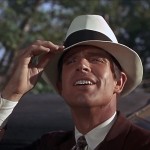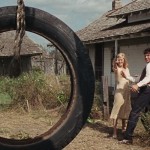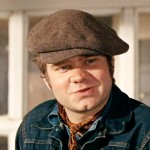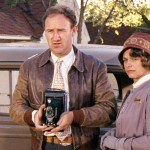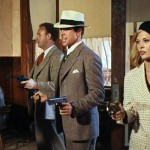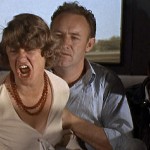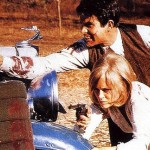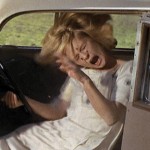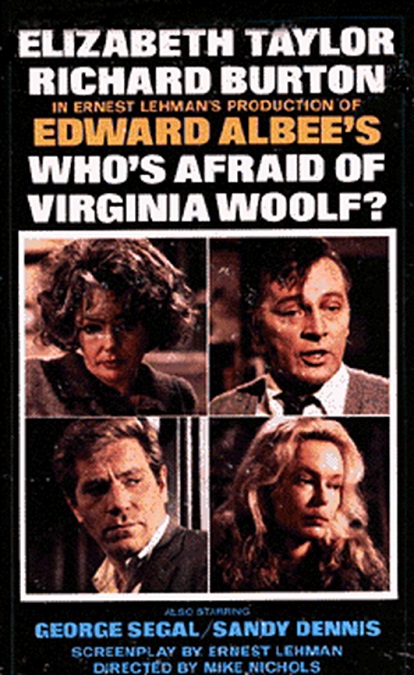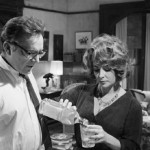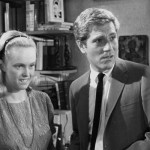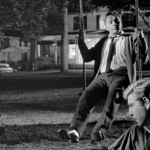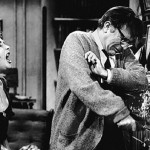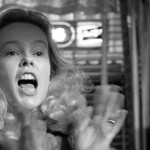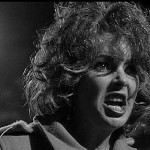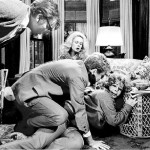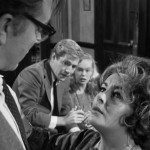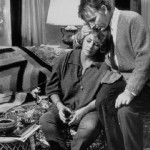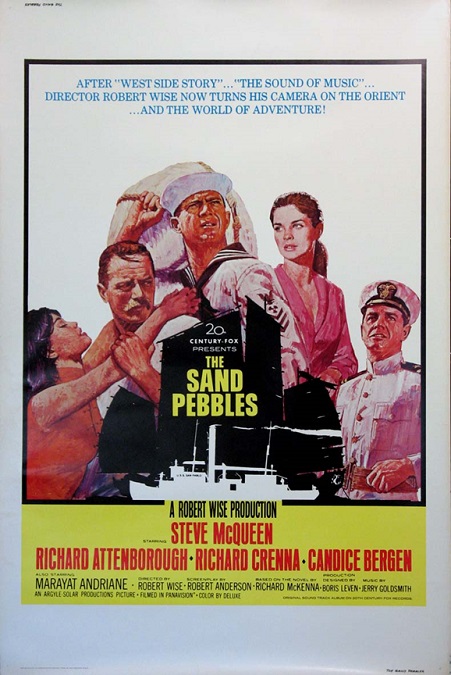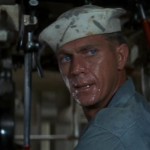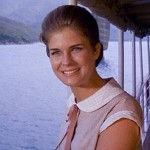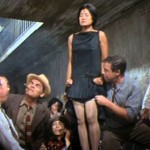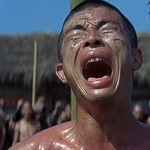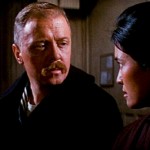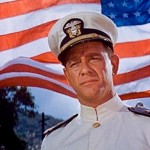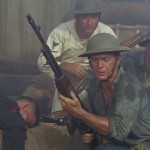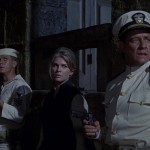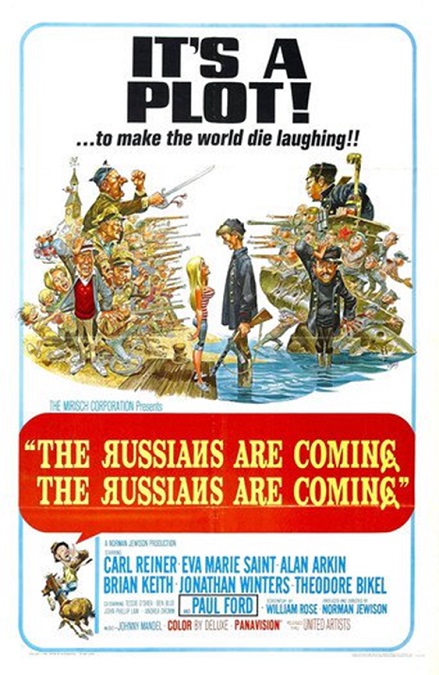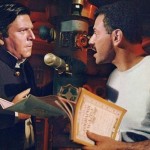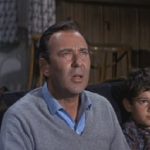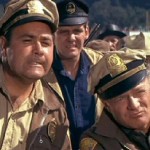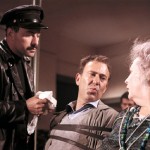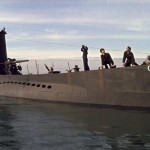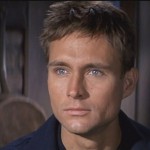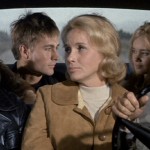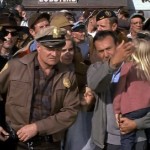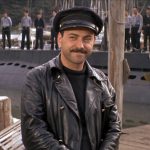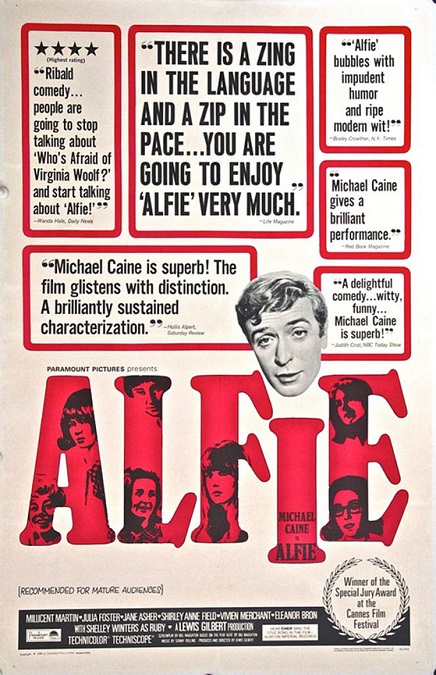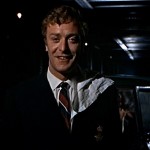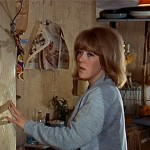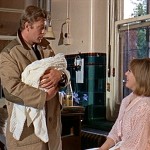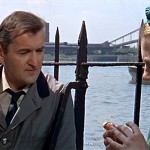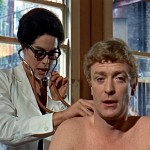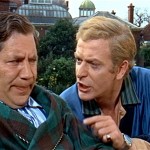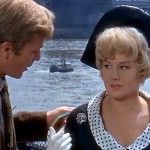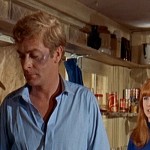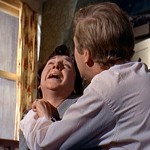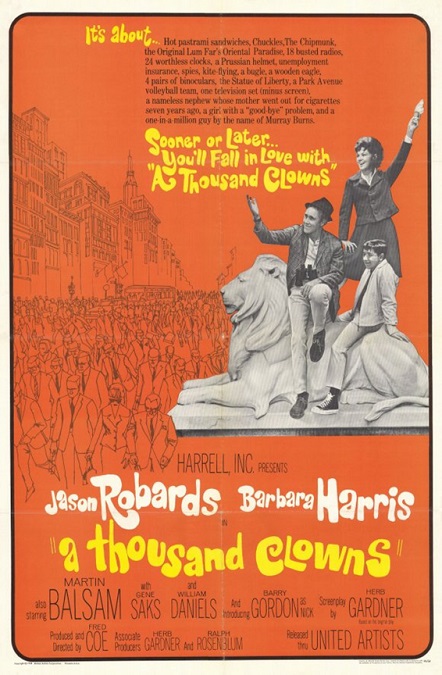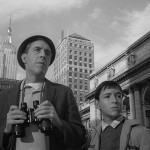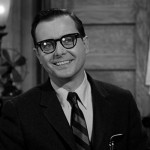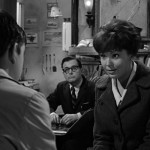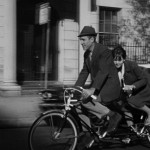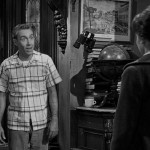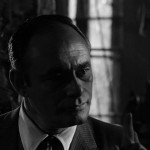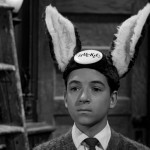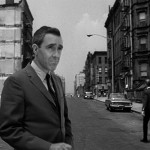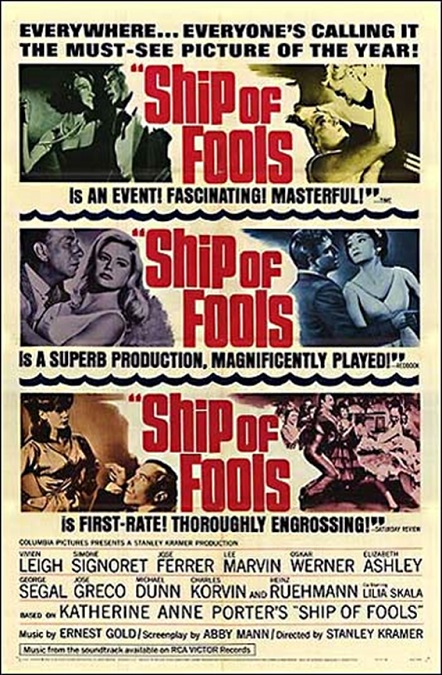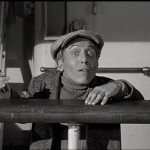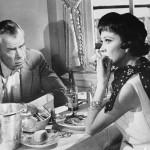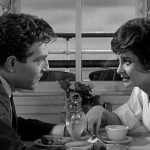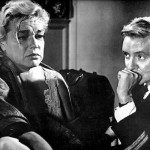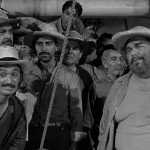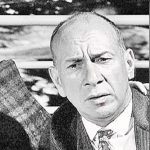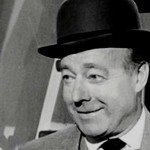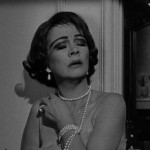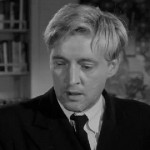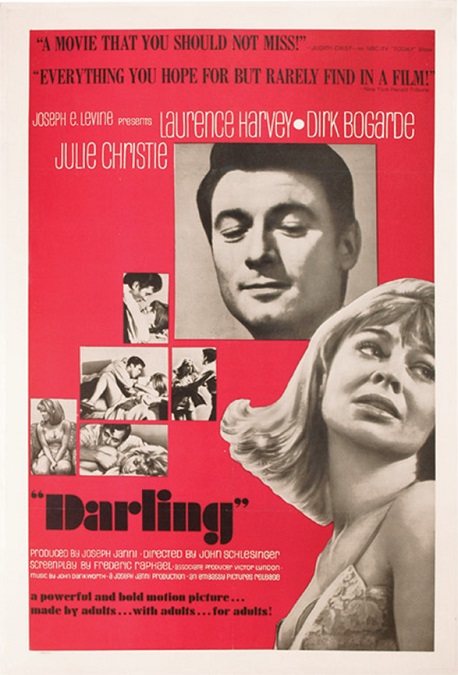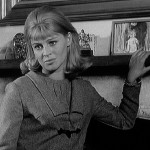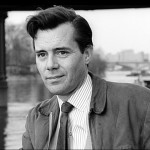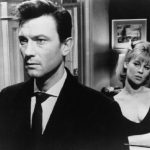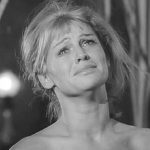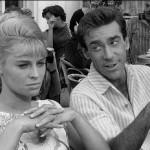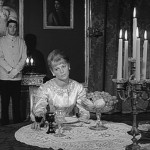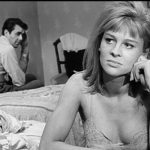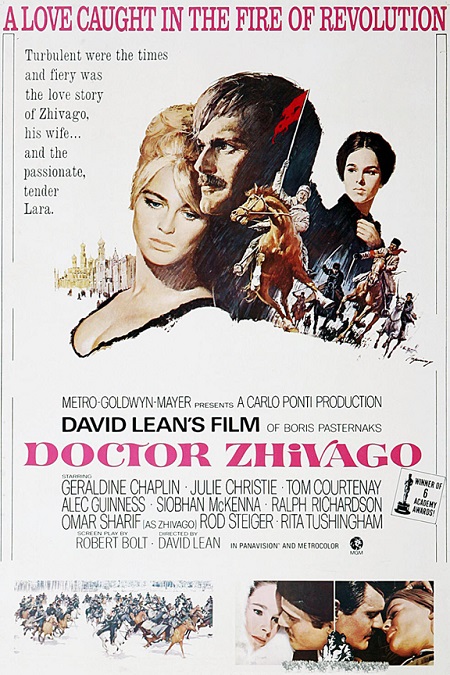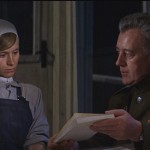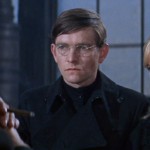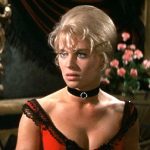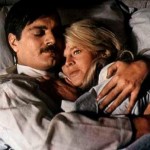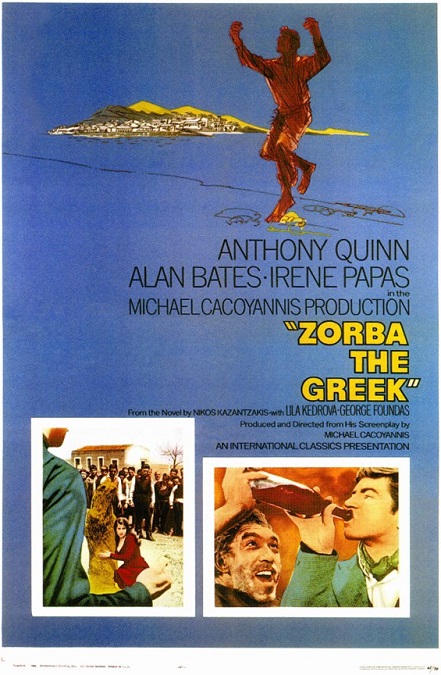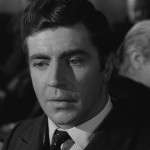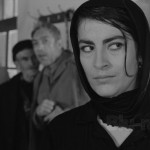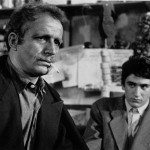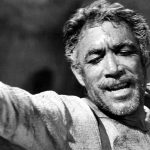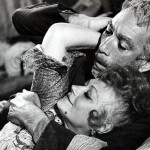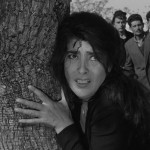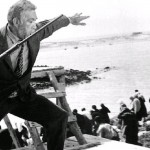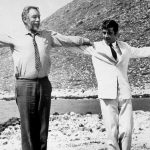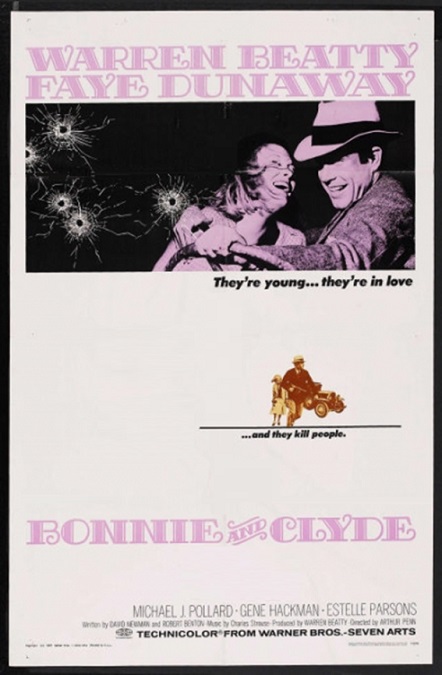
Bonnie and Clyde – 1967
Notorious bank robbers and killers, Clyde Barrow and Bonnie Parker are the leads in this semi-comedic, and somewhat fictitious telling of the pair’s murderous partnership, beginning with their meeting and ending with their deaths. Many of the film’s bullet points actually happened in real life. Most of them did not. But there was just enough truth in the film to get away with using their infamous names.
Warren Beatty and Faye Dunaway starred as the trigger happy duo, and to be sure, this film had plenty of violence and blood. Michael J. Pollard played their slow-witted accomplice, C. W. Moss, and Gene Hackman also had a part as Clyde’s older brother Buck. Buck’s dowdy wife Blanch was played by Estelle Parsons.
The movie was fun to watch, and had the feel of a crazy, playful, red-neck romp through the south, but the subject matter was anything but light hearted, except that you’d never know it based on the music. Whenever a law enforcement officer was murdered, and Bonnie and Clyde were making their escape, crazy, banjo-heavy music would start to play like it was an episode of The Dukes of Hazzard.
But it was black comedy, so there was a certain kind of humor, though it was never intended to make you laugh. For example, Clyde held up a bank at gunpoint, but is told by the single teller that there is no money. Apparently, the bank had been closed for two weeks. So, Clyde pulls the teller out to the getaway car so he won’t have to be the one to tell Bonnie that they held up the bank for nothing.
As usual with a film based on true events or characters, I did a little research into the real Bonnie and Clyde. One of the things that the film got right was that they weren’t very good bank robbers. Jobs would get bungled on a regular basis. Sometimes they would rob shops or stores instead of banks because they were always short on cash, but the places they robbed were often short on cash as well, so they would get away with only a few dollars.
The character of C. W. Moss was a combination of several real life people. He was a mechanic, and was brought on board as a getaway driver. Small and dopey-looking Pollard played him almost as a bit of comic relief. He played the part well, and I actually ended up liking his character. And I also liked how he was loyal to Bonnie and Clyde, but only to a point. He saw their downfall and did nothing to warn them.
But I learned that in the original draft of the script, he had a very different role. He was supposed to have been two things. He was supposed to be big and brawny, and he was supposed to be Clyde’s bisexual lover. This would help put a dramatic strain on the relationship between Clyde and Bonnie. But the producers decided that audiences weren’t ready for something that controversial, so they achieved the desired effect by making Clyde impotent. Not that it mattered. The real-life Clyde Barrow was neither bisexual nor impotent. But OK, Hollywood – whatever.
Both Beatty and Dunaway did their parts well, but for me, Dunaway was a bit of a scene-stealer. Apparently this was the role that propelled her into super-stardom, and it was well deserved. From start to finish she created a complex character with intriguing motivations. Sure, Clyde was just a bad man, but Bonnie followed him. Why? What was it about him that made her love him so much? And the notion of a female gangster has its own attractiveness.
I also have to give a special thumbs up to Hackman and Parsons for some good performances as well. Hackman always has a certain confidence about him that is clear and strong. He seems like he feels at ease in front of the camera. And Parsons played the part of an annoying woman well, almost too well.
My one disappointment? A small supporting role played by Gene Wilder. He played Eugene Grizzard, a man whose car is stolen by the Barrow Gang, but when he chases them down, he and his girlfriend are taken hostage. It seemed like Wilder was trying hard to be serious and dramatic, but his strange, dead-pan delivery bordered on pure comedy. It was just a costume away from Willy Wonka. Listen to him say “Faster! Faster!” during the chase scene, and you’ll see what I mean.

